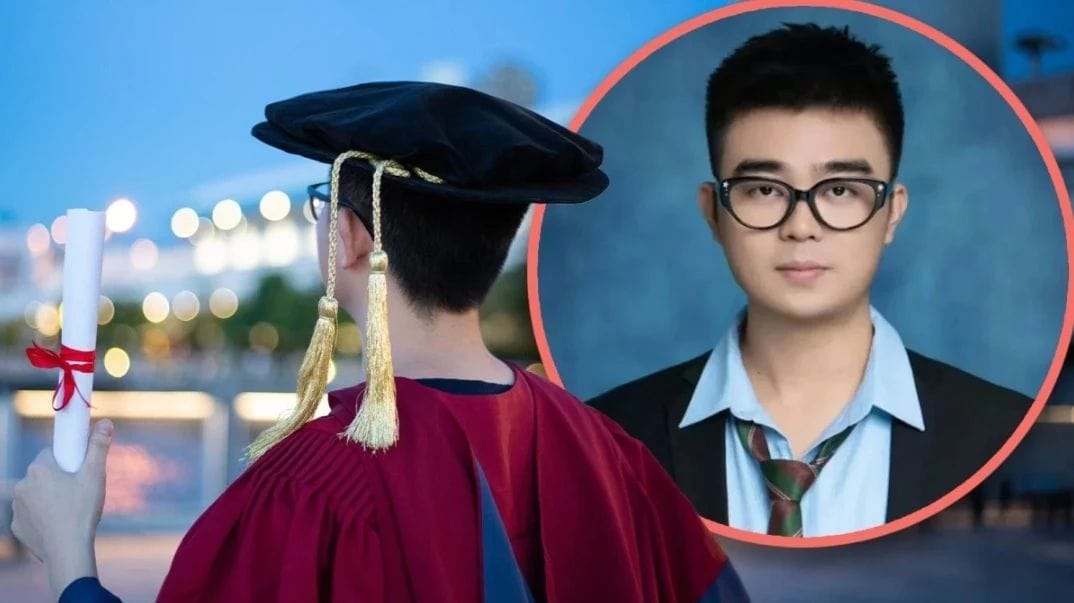
A young Chinese man named Zhao Zijian, 29, has captivated social media in mainland China with his extraordinary academic achievements, including two postdoctoral degrees, four doctorates, four master’s degrees, and over 20 memberships in academic organizations. His story sparked heated discussion when the Inner Mongolian National Culture and Art Research Institute announced his appointment as a researcher and highlighted his impressive academic record.
Zhao claims to have obtained doctorates in fields such as performing arts, psychology, education, and biblical studies. He specifically mentioned that he completed his doctoral studies at a “Catholic university” in South Korea and the Lyceum of the Philippines University, a private institution. Additionally, he holds multiple master’s degrees in subjects like communications, Buddhist studies, and mindfulness studies, earned from the University of Hong Kong, Baptist University, and two universities in Spain: the University of Zaragoza and Miguel de Cervantes European University.
Beyond his degrees, Zhao is a member of 22 different academic societies across various disciplines, including economics and medicine. He has also published 24 “high-level” academic papers, boasting a cumulative impact factor exceeding 28—a measure indicating the frequency with which his articles have been cited.
However, many people have questioned the credibility of Zhao’s achievements, noting that it typically takes at least four years to complete a single PhD, making his numerous degrees seem improbable.
In response to the controversy, the research institute has suspended its collaboration with Zhao and initiated an investigation into his qualifications. On October 12, Yin Fujun, the institute’s director, informed China Newsweek that no “obvious counterfeiting” had been identified. He confirmed that all four of Zhao’s master’s degrees had passed verification by the Chinese Service Centre for Scholarly Exchange (CSCSE). However, only one of his doctorates had been verified, with another still undergoing the process. Zhao reportedly has no intention of seeking verification for the remaining two PhDs.
Yin stated that Zhao met the institute’s standards for the researcher role and expressed regret over the inconvenience caused to him. Zhao has yet to publicly address the situation.
Online commentators remain skeptical about the authenticity of Zhao’s academic credentials. Reports revealed that some of his degrees were acquired through online courses, and Miguel de Cervantes European University is not listed among officially recognized institutions. Furthermore, the CSCSE had identified the Lyceum of the Philippines University’s Batangas Campus, where Zhao’s psychology studies were conducted, as one of 13 lower-tier foreign universities requiring stringent verification as of July this year.
It also emerged that many of Zhao’s claimed 22 academic memberships were basic public or student memberships, which are often available for a fee. One observer questioned the value of holding numerous titles without making tangible contributions to academic research, asking, “What is the point of having so many titles without making actual contributions to academic research?”






